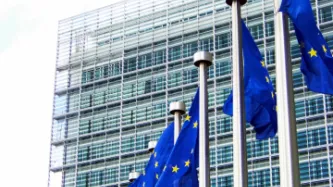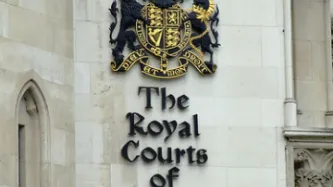Search
Content type: News & Analysis
We, and other privacy advocates, havecriticised the poor provisions of the so-called Safe Harbour agreement, which allows free transfers of personal information from European countries to companies in the United States that have signed up and promise to abide by its Principles. Now the European Commission, prompted by the recent mass surveillance scandals, has published an investigation into this agreement which provides overwhelming evidence that it is not fit for purpose. It…
Content type: News & Analysis
At the first major discussions on internet governance since the Snowden leaks began in June 2013, Sweden’s Foreign Minister has called for the establishment of principles to define the application of existing human rights obligations to the digital realm.
Noting that the Snowden revelations have given birth to “a new debate about surveillance and privacy”, Foreign Minister Carl Bildt acknowledged that internet governance is being challenged, as some States operate vast surveillance…
Content type: News & Analysis
The European Parliament Committee that deals with civil liberties and justice issues will have a first vote this week on the revised European data protection framework after months and months of deliberations and negotiations over more than 4,000 amendments. The vote is the first on the framework, which will decide the future of privacy and data protection in Europe. The recent revelations surrounding government surveillance involving some of the Internet's biggest companies have highlighted…
Content type: News & Analysis
The argument that human rights are a Western concept and that privacy is not a concern for the developing world was rejected last week in a two-day civil society seminar held in Dakar, Senegal.
More than 30 members of West African civil society participated in the seminar on privacy and data protection, organised by Jonction with the support of the Senegalese Commission for Data Protection. Participants denounced the shortcomings of governments and the private sector in…
Content type: News & Analysis
It is a long-standing privacy principle that an individual should have access to their personal information. This is particularly necessary in healthcare - after all there is nothing more personal than health information.
As the mass digitisation of health records increases, many issues arise about this access right. The right of 'subject access' comes with its own complexities. One challenge is that individuals can sometimes be compelled to conduct subject access requests in…
Content type: News & Analysis
All across the U.S. on 4 July, thousands of Americans gathered at Restore the Fourth rallies, in support of restoring the Fourth Amendment of the U.S. Constitution and to protest the recently-disclosed information regarding NSA spying on American citizens. Demonstrations took place in over 100 cities, calling on the U.S. government to respect the privacy rights of citizens in America and individuals around the world.
With all this talk of constitutional …
Content type: News & Analysis
Compulsory data on every state school pupil in the country can now be used for research “promoting the education or well-being of children in England”, according to UK Department for Education.
The Department’s response to the highly worrying National Pupil Database (NPD), released in late May, is far narrower than previously suggested late last year, with none of the deeply troubling aspects being included in the final proposals, and existing definitions of terms…
Content type: News & Analysis
Privacy International welcomes the absence of a Communications Data Bill in the Queen's Speech. The Communications Data bill was originally set to significantly expand the powers of communications surveillance in the UK and set another bad standard globally. Because of the work by Parliamentarians, a concerted effort by civil society groups and some within industry, this expansion was avoided, for now. However the Queen's Speech did include a mention of new proposals:
In relation…
Content type: News & Analysis
We very much welcome today's announcement by Health Secretary Jeremy Hunt that people will be allowed to opt out of having their medical records shared in the NHS England centralised information bank.
The move is an important one for data privacy and patient choice, and has been a key objective of Privacy International in our collaboration with the new medConfidential (which launched yesterday). A month ago, NHS England (and the Director of…
Content type: News & Analysis
Privacy International welcomes the news that the UK NHS Data Spine is being replaced. We have fundamental privacy concerns about the existing infrastructure, and the proposed changes have the potential to enable the necessary privacy protections to be implemented in a meaningful way.
Core elements of the NHS Spine, the technological infrastructure underpinning the Service that cost the Government over £12 billion pounds, will be have to be replaced after numerous failures. The…
Content type: News & Analysis
"This judgment exposes the widespread and sinister nature of police surveillance of ordinary members of the public in this country. It also acts as a safeguard against the creeping criminalisation of peaceful protest. The Association of Police Officers and Metropolitan Police Commissioner have sanctioned this unlawful conduct for almost a decade and must be made accountable”.
Last week three of the country’s most senior judges in the Court of Appeal found that the Association of Chief Police…
Content type: News & Analysis
The drive for accountability in aid spending has put humanitarian and development agencies under pressure to collect an ever-growing amount of data about those who receive their assistance. Donors also increasingly demand that new technologies are deployed to ensure aid reaches those it is targeted at; preventing people from fraudulently using refugees’ identities, for example, was a key motivation behind UNHCR’s recent introduction of biometric technology to register Syrian…
Content type: News & Analysis
Below is an excerpt of an article that recently appeared on Slate, written by our partner Kevin Donovon, a researcher at the University of Cape Town, and Carly Nyst, Head of International Advocacy at Privacy International:
"Move over, mobile phones. There’s a new technological fix for poverty: biometric identification. Speaking at the World Bank on April 24, Nandan Nilekani, director of India’s universal identification scheme, promised that the project will be “transformational.” It “uses…
Content type: Advocacy
Just over a year ago, vitally important reforms to European privacy and data protection laws were proposed. Now these reforms, which will affect the rights of half a billion Europeans, are being watered down in their passage through various European parliamentary committees as MEPs succumb to an unprecedented industry lobbying onslaught. There is now irrefutable evidence of the impact of this lobbying, thanks to a technology-powered research method comparing corporate lobby documents…
Content type: News & Analysis
Just over a year ago, vitally important reforms to European privacy and data protection laws were proposed. Now these reforms, which will affect the rights of half a billion Europeans, are being watered down in their passage through various European parliamentary committees as MEPs succumb to an unprecedented industry lobbying onslaught. There is now irrefutable evidence of the impact of this lobbying, thanks to a technology-powered research method comparing corporate lobby documents…
Content type: Press release
A European privacy group claimed today that dozens of amendments to the new Data Protection Regulation being proposed by Members of the European Parliament (MEPs) are being copied word-for-word from corporate lobby papers, with MEPs frequently failing to even remember their own amendments. Max Schrems, of the website and campaign Europe v Facebook, noticed striking similarities between proposed amendments and lobby papers written by representatives of Amazon, eBay, the American Chamber of…
Content type: News & Analysis
Today is Data Privacy Day, which commemorates the 1981 signing of the Coucil of Europe's Convention 108, the first legally binding international treaty dealing with privacy and data protection. It is celebrated all over Europe, as well as in Canada and the United States since 2008. To mark the occasion, Privacy International, together with other prominent privacy and digital rights organisations, is launching the Brussels Declaration. It urges Brussels parliamentarians and European…
Content type: News & Analysis
On International Data Privacy Day, it is important that we all ask ourselves: who has access to our personal information? Who can find out where we’ve been and who we’ve called, who can read our emails and our text messages? Who can find which websites we access and which files we download?
Statistics released by Google and Twitter over the past week are a sobering reminder that it is not only the corporations to which we consensually provide this information which are able…
Content type: Press release
Google's latest Transparency Report, released at 3pm GMT this afternoon, shows that requests by European governments for the browsing history, email communications, documents and IP addresses of Google's users have skyrocketed since the Transparency Report was launched three years ago. Countries in the European Union made 7,254 requests about 9,240 users or accounts between July and December 2012, averaging over 1,200 requests a month. This represents over a third of all requests made by…
















